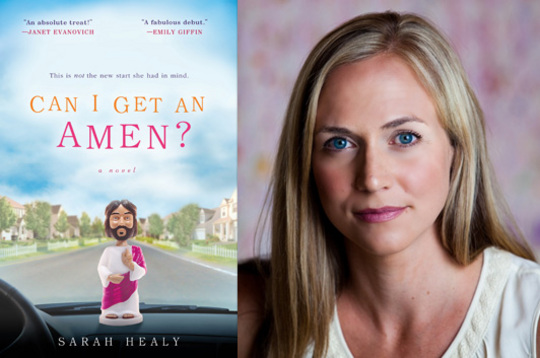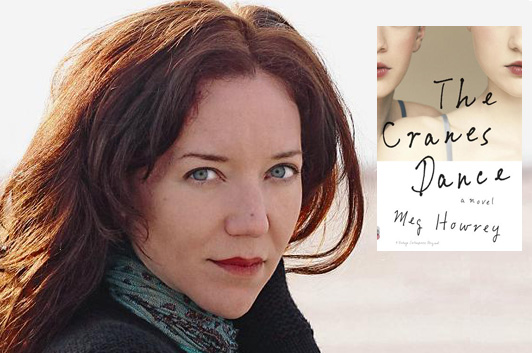Read This: The Final Character Approved Picks

photo: Shem Roose Photography
In the summer of 2011, I took on a gig as the “Writing” correspondent for the USA Network’s Character Approved blog, providing weekly pointers toward new books and authors. My first post was a five-book summer reading list, so it seems somehow fitting that as USA puts the blog on hiatus, I end with another summer reading list, this time focusing on debut novelists.
I actually didn’t realize it as I was picking out the books to include on this list, but both Can I Get an Amen? by Sarah Healy and Wichita by Thad Ziolkowski are comic novels about adults who move back in with their wacky parents—whether that wackiness is of the born again or New Age variety—and it’s also a prospect that comes up in Leni Zumas‘s The Listeners. (The protagonist of Gilded Age, a modernization of The House of Mirth by Claire McMillan, returns to her hometown as the novel begins, too, but it’s a slightly different scenario.) So there’s a cultural/literary trend I may have inadvertently stumbled upon, eh?

photo: Travis Tanner
When I got the news about Character Approved suspending publication, I’d just submitted what was going to be my next post, about Meg Howrey‘s The Cranes Dance. It’s hard not to think about Black Swan when you’re reading this novel, especially since it leads off with a performance of Swan Lake, as described by Kate Crane, one of the dance company’s leading performers. It’s a semi-sarcastic recap of the plot, with a few insider jokes thrown in. (Later, Kate will admit you might have seen her and her fellow dancers in the background of a recent ballet film, lending ambience to the star actress’s performance. “Between the actress’s lobster-claw hands and biscuit-shaped feet, no one could mistake her for the real thing,” Kate snarks. “Except for the millions of people who completely loved the movie, of course.”) The deeper we get inside Kate’s head, though, the more Howrey—herself a former professional dancer and actress–is able to take the story in her own direction. So, although my post may not run there, I wanted to make sure you knew to keep an eye out for this one.
3 July 2012 | read this |
Read This: Beautiful Ruins

photo: Hannah Assouline
Short, shameful confession: In mid-June, I took my Flip camera to the HarperCollins offices and recorded nearly a half-hour of conversation with Jess Walter about his new novel, Beautiful Ruins. It was a really good interview, which is why I’m embarrassed to say that earlier this week, I accidentally deleted it from the Flip’s hard drive before I had transferred it to my computer. (It’s even more frustrating than it sounds, because I was trying to get out of a delete menu that had inadvertently opened, so I could make the transfer.) I tried taking it to a data recovery specialist, but they were unable to pull the file back from the abyss…
But a lot of the things we touched upon in that interview are connected to the reasons that you really ought to read Beautiful Ruins, starting with the fact that it’s a wonderful story, unlike anything Walter has ever done before. In fact, we started out by talking a little bit about how he’d gotten his first book deal for a nonfiction book about the Ruby Ridge standoff, which he had covered for the Spokane newspaper. He could’ve built up a portfolio of true crime books after that, but instead (after co-authoring Christopher Darden’s memoir) he segued into writing crime fiction, winning an Edgar for his third novel, Citizen Vince. The novel after that, The Zero, had its noirish elements, but was quickly noticed for its literary qualities, earning a nomination for the National Book Award.
And the novels since then, The Finanical Lives of the Poets and now Beautiful Ruins… well, one way of looking at would be to say that he’s moved even further away from his roots, but he talked to me about the continuity he saw in them, that he had always been focused on the story rather than on the genre. And we talked about how he was in the fortunate position of having publishers who supported a creative path that might not necessarily be easily marketable… except, of course, that “he’s really good, and can totally surprise you” is actually marketable, to the right readers.
29 June 2012 | read this |

 Our Endless and Proper Work is my new book with Belt Publishing about starting (and sticking to) a productive writing practice.
Our Endless and Proper Work is my new book with Belt Publishing about starting (and sticking to) a productive writing practice. 
